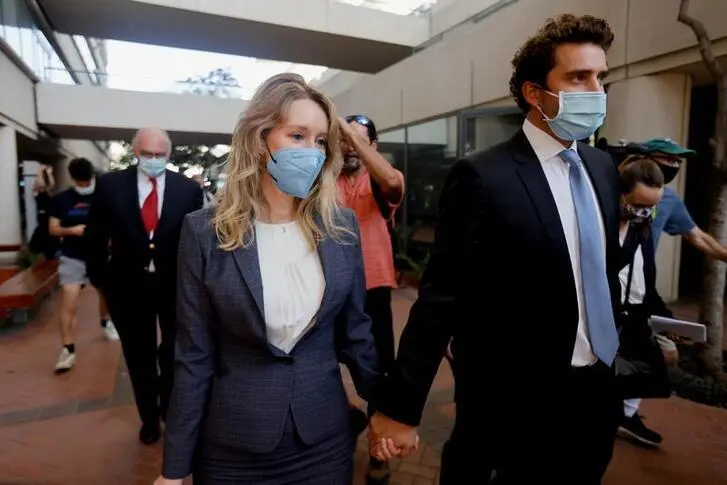PHOTO
SAN JOSE, Calif.- Jurors began weighing the fate of Theranos founder Elizabeth Holmes' on Friday, after the prosecution and defense painted very different pictures of the entrepreneur who once dazzled Silicon Valley and is now charged with fraud.
In the final hours of a trial that has spanned three months, Assistant U.S. Attorney John Bostic said Holmes embraced dishonesty in an attempt to save the blood testing startup.
"She committed these crimes because she was desperate for the company to succeed," he said.
After receiving the case on Friday, the jury went home for the evening. They were due to return on Monday.
Holmes believed Theranos would change medicine with small machines that could run a wide range of blood tests on a few drops from a finger prick, her lawyers have said, arguing the company's failure was not a crime.
But prosecutors say Holmes lied to investors and retail customers, including by overstating what Theranos' machines were capable of and the accuracy of its tests. She faces nine counts of fraud and two counts of conspiracy.
The meteoric rise and spectacular fall of Theranos turned Holmes from a young billionaire into a defendant who could face years in prison if convicted.
Once valued at $9 billion, Theranos collapsed after the Wall Street Journal published a series of articles, starting in 2015, that suggested its devices were flawed and inaccurate.
Holmes' attorney Kevin Downey said the evidence did not show Holmes was motivated by a cash crunch at Theranos, but rather thought she was "building a technology that would change the world."
"You know that at the first sign of trouble, crooks cash out," but Holmes stayed, Downey said. "She went down with that ship when it went down."
(Reporting by Jody Godoy in San Jose, Calif.; Editing by Noeleen Walder, Matthew Lewis, Jonathan Oatis, Daniel Wallis and Sonya Hepinstall) ((Jody.Godoy@thomsonreuters.com))





















